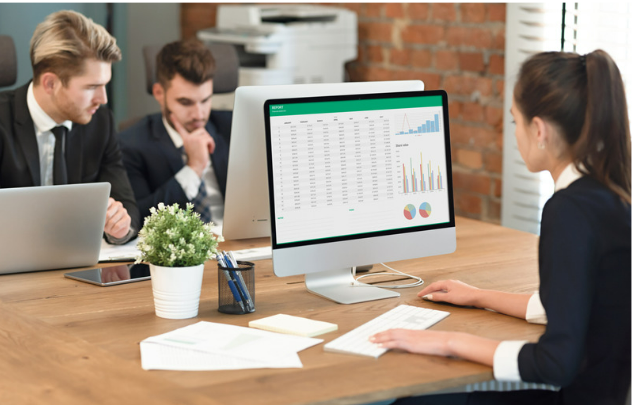Key Points:
1. Construction accounting requires project-specific cost tracking, which helps determine the profitability of each job. Costs like labor, materials, and equipment must be carefully linked to project milestones.
2. A well-organized chart of accounts simplifies tracking income and expenses by categorizing them under relevant projects and general business costs. This aids in producing accurate financial reports.
3. Managing cash flow is critical since payments are often tied to project phases. Regularly comparing cash inflows with expenses prevents financial issues during long project timelines.
4. Construction-specific accounting software streamlines bookkeeping with features like job costing, billing, and inventory management.
Bookkeeping is an important part of running any business smoothly. Bookkeeping For a Construction Company is crucial as projects vary in scope and finances are complex. Financial reports aid in business planning, credit decisions, and securing more work.
Accounting also supports managing cash flow efficiently as payments from projects occur in stages. Invoicing and collection cycles depend on it.
This guide will explain the basic bookkeeping concepts for construction businesses in simple steps. It will help owners and managers set up an efficient system to manage company accounts and stay compliant with tax requirements.
How Is Construction Accounting Different?

Construction accounting has some unique aspects compared to other industries due to the nature of construction projects.
Projects in construction businesses vary in scope and duration, which is the main factor making construction accounting different. Expenses must be tracked project-wise to determine the profitability of each job accurately.
It involves allocating costs of materials, labour, equipment, and other direct expenses uniquely to every project as they progress. This may take planning to link costs to billing milestones or phases of work completed.
Cash flow management is also critical as project revenue is typically received in chunks tied to milestones, unlike regular income for other businesses.
Careful planning and monitoring of actual cash inflows vs. outlay is needed to avoid financial issues due to project timelines.
Construction accounting software has features like job costing, purchase orders, and billing to help streamline this specialized accounting process when managing multiple concurrent construction projects of varying sizes.
Tips for Handling Your Construction Accounting Processes

The following steps can help you get your construction accounting started on the right track and assist you in handling your construction accounting processes.
Setting up your Chart of Accounts
The chart of accounts is the foundation of your bookkeeping system. It defines the different accounting codes for income, expenses, assets, and liabilities. Set it up by listing customer, vendor, project codes, and general expense categories.
This helps organize financial data and makes reporting easy. Speak to your accountant to ensure your chart meets company needs and industry standards.
Recording Income and Expenses
Record income when billing clients and track it against the relevant project codes. For expenses, allocate costs like materials, subcontractor charges, and equipment rental to projects—record other overheads like wages, rent, and utilities as general expenses.
Issue invoices to clients and track payments received against invoices. Record check or transfer payments made to vendors in the expenses section.
Tracking Project Costs
Closely tracking costs is crucial for construction projects that have changing budgets. Record all project-related expenses under the relevant codes: track materials, labour, and other direct costs.
Calculate estimated costs and record actual costs periodically to flag variances. Monitor project profitability by comparing expenses to the value of work completed or to the original estimated budget. This helps take corrective actions if needed.
Managing Cash Flow
Carefully tracking cash inflows and outflows is important as construction projects span months. Record payment schedules along with actual receipts. Similarly, note disbursement schedules compared to actual payments made.
Comparing cash flow projections with actual figures will help plan expenses and request progress payments from clients accordingly. This avoids financial issues due to a mismatch in cash availability and project costs.
Developing Financial Reports
Bookkeeping helps prepare vital financial statements for business management and compliance. Compile an income statement to analyze profitability.
Construct a balance sheet listing assets, equity, and liabilities at a point in time. Generate project-wise cost reports for clients and internal review. Give a cash flow statement detailing sources and uses of funds. Periodic reports empower better decision-making to maximize returns.
Accounting Software
Using accounting software makes bookkeeping simpler by automating tasks and data storing. Look for ones customized for construction with tools for purchase order management, job costing, billing, and inventory.
Ensure compliance with the tax and filing rules of your location. Train staff to use it correctly for maintaining transparent and accurate records online or on mobile apps. Back up data to prevent loss.
Record Retention
Maintain financial records like invoices, receipts, bank statements, etc., for the period mandated by tax regulations, usually 5-7 years. Store them systematically, physically or online, in folders by financial year.
Shred or delete unnecessary records after the retention period ends. This allows audits and protects the business if tax authority seeks documents years later for compliance checks. Overall, streamlined bookkeeping provides control over company finances.
Wrap Up
Managing the bookkeeping for a construction company doesn’t need to be a source of constant stress and frustration. With some planning and the help of modern tools, you can significantly reduce the challenges involved in vital bookkeeping tasks like invoicing clients, recording expenses, maintaining the books, and preparing tax returns.
It’s important first to recognize how bookkeeping for a construction business differs from normal accounting and then apply the useful tips for handling bookkeeping for a construction company. I hope this post will be informative for you. Thank you!
Frequently Asked Questions (FAQs)
Q1. Why is bookkeeping important for a construction business?
Ans 1: Effective bookkeeping provides the financial visibility to monitor project budgets and profits. It ensures compliance and helps secure funding. Accurate records also improve tax planning and support connecting bonding requirements for new work.
Q2. How do I track project costs?
Ans 2: Maintain a chart of accounts coded to each project. Record all direct costs like materials, labour, and equipment. Track overhead, too, using estimates. Reconcile actual vs. estimated costs regularly to flag variances for corrective action—link costs to billing milestones for clear reporting to clients.
Q3. What accounting software is best for construction?
Ans 3: Look for software with features like job costing, purchase orders, inventory, billing, and reporting. Integrated options to manage payroll, estimate projects, and connect to construction-specific apps are a plus. Consult experts to choose one suitable for your business’s size, processes, and compliance needs.
Q4. What records should I retain, and for how long?
Ans 4: Keep financial documents, tax returns/reports, and payroll records for 5-7 years based on your local regulations. Store them systematically by financial year for easy retrieval if tax authorities require verification. Destroy paper records appropriately once the retention period ends.
Q5. How do I manage cash flow effectively?
Ans 5: Closely monitor workflow schedules and billings against actual milestones achieved and costs disbursed via bank statements. Adjust collection cycles based on project variation and cost the earlier. Comparing projections to actuals monthly helps make informed financial decisions.
Also read:




